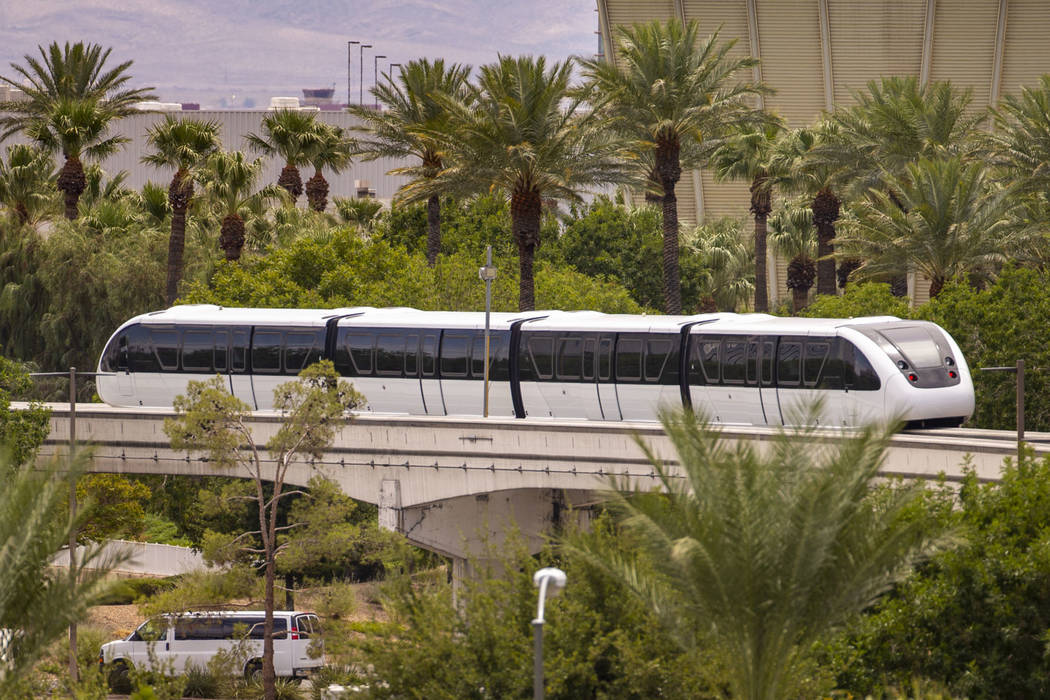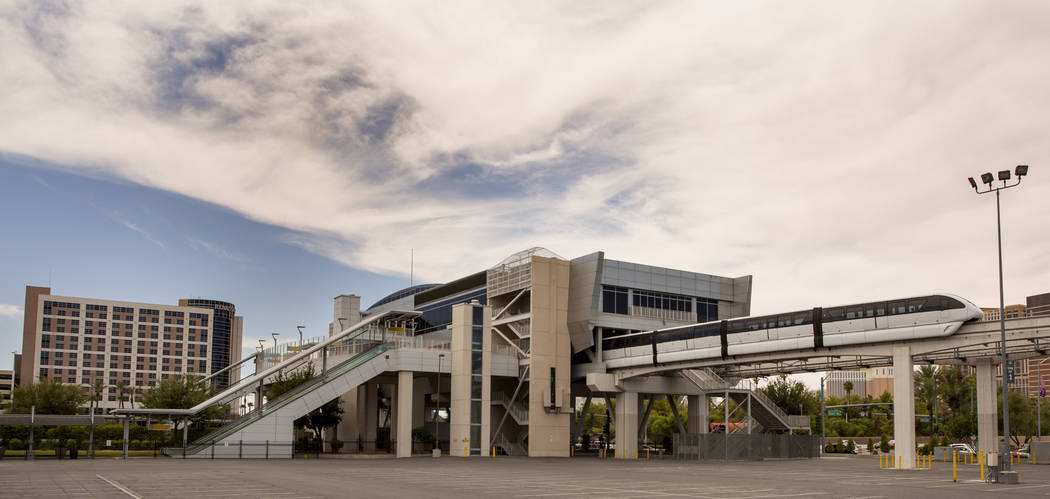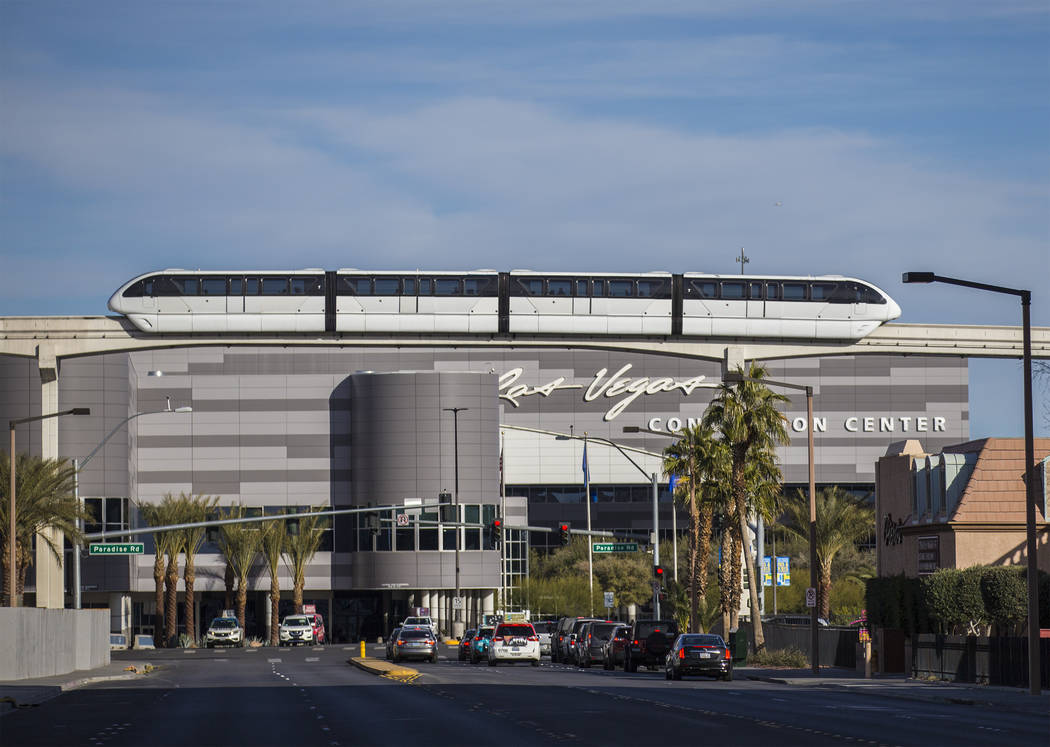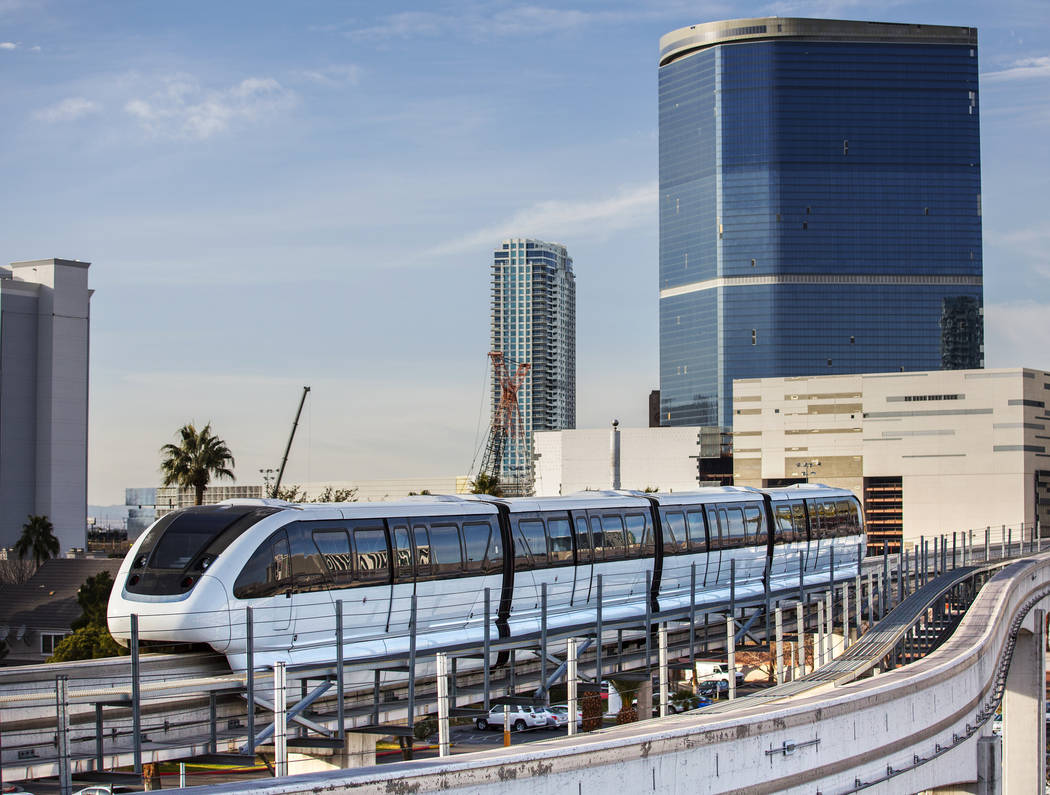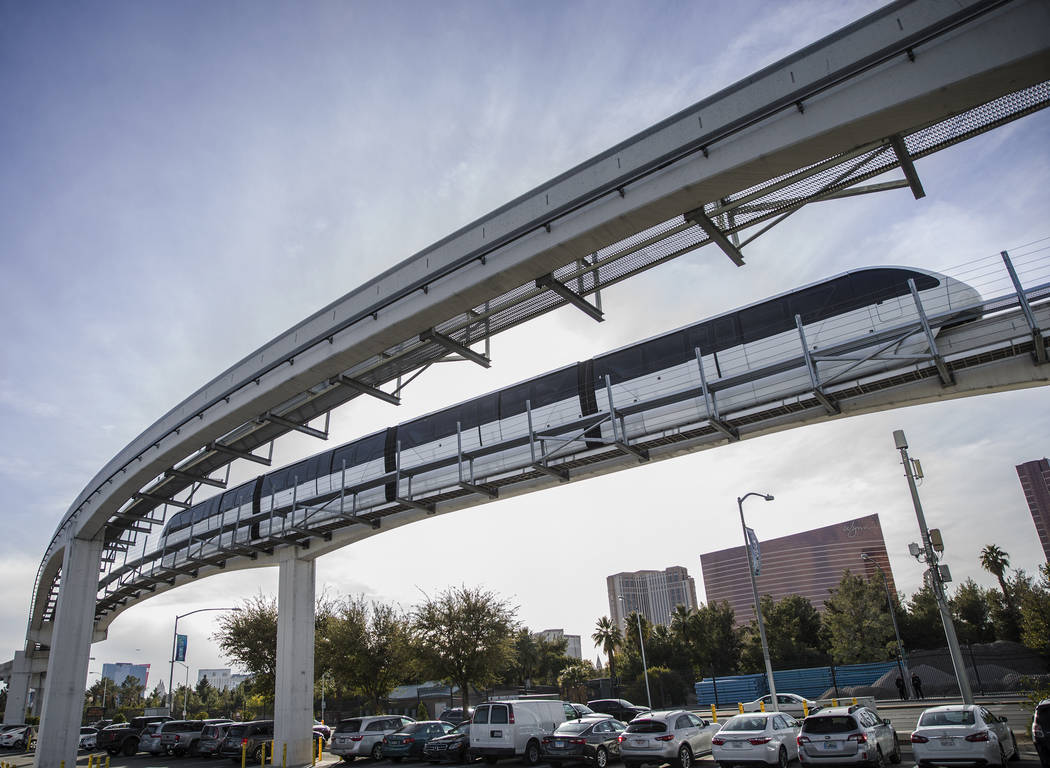Review concluded added stops wouldn’t sustain Las Vegas Monorail
Adding two new stops to the Las Vegas Monorail’s route would likely not generate enough ticket sales to sustain the transportation service because of competition from companies like Uber and Lyft, Nevada Gov. Steve Sisolak’s staff concluded before the governor rejected a plan to finance the projects last month.
That assessment, obtained by the Review-Journal through a public records request, guided the governor’s decision not to sign a certificate allowing the Monorail Co. to secure up to $200 million in tax-exempt bonds to pay off existing debts, extend its route along the Strip by about a mile to Mandalay Bay and construct new stations there and at the MSG Sphere, now under construction at The Venetian.
“You can’t put something there that will not be economically feasible,” Sisolak told the Review-Journal after he made the decision. “The study just didn’t support the idea of additional bonds.”
The Monorail Co. needed Sisolak’s approval to seek funding through a long-standing IRS rule that allows nonprofits to issue tax-exempt bonds on behalf of the government. The ruling required that Sisolak sign a certificate capping how much money the Monorail Co. could borrow from private investors and agreeing that the state would take ownership of the monorail system once its debts are repaid.
Sisolak’s office announced on Aug. 16 that the governor would not sign the certificate, but gave no reason for the decision at the time. Sisolak’s comments and an internal email written by Nevada Department of Business and Industry Director Michael Brown shed more light on the decision.
Hours before the governor’s decision was announced, Brown wrote to Sisolak’s general counsel, Brin Gibson, that the impact of ride-sharing companies “makes it unlikely the needed ridership will materialize to sustain the monorail, even with the addition of the two proposed stations.”
Monorail Co. President and CEO Curtis Myles said the extended system with two new stops serving the MSG Sphere and Allegiant Stadium would be sustainable, despite the doubts cast by Sisolak and Brown.
“LVMC, its partners and lenders have studied the economics of the project(s) over the past two years and believe that not only is it feasible, it will provide enhanced mobility and congestion relief in the resort corridor as major infrastructure projects come to fruition,” Myles said.
Uber and Lyft already have hurt the system’s ridership revenue. The Monorail Co. blamed ride-sharing companies for ticket sales over the past two years falling millions of dollars short of projections.
The monorail is not the only local transportation system that has suffered because of ride-sharing companies.
Public bus revenue has fallen 29 percent over the past five years, according to the Regional Transportation Commission of Southern Nevada. Taxi cab ridership is also decreasing while Uber and Lyft increase in popularity, data collected at McCarran International Airport shows.
“It’s an unignorable, growing presence,” RTC CEO Tina Quigley said of the ride-sharing services. “As we project our numbers in the future, we’re not planning a plateauing of this activity anytime soon.”
The Review-Journal is owned by the family of Las Vegas Sands Corp. Chairman and CEO Sheldon Adelson. The Sphere is a project by Madison Square Garden and Las Vegas Sands Corp.
Contact Mick Akers at makers@reviewjournal.com or 702-387-2920. Follow @mickakers on Twitter.
Contact Michael Scott Davidson at sdavidson@reviewjournal.com or 702-477-3861. Follow @davidsonlvrj on Twitter.



